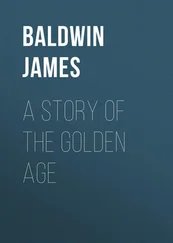James George Frazer - The Golden Bough
Здесь есть возможность читать онлайн «James George Frazer - The Golden Bough» — ознакомительный отрывок электронной книги совершенно бесплатно, а после прочтения отрывка купить полную версию. В некоторых случаях можно слушать аудио, скачать через торрент в формате fb2 и присутствует краткое содержание. Жанр: unrecognised, на английском языке. Описание произведения, (предисловие) а так же отзывы посетителей доступны на портале библиотеки ЛибКат.
- Название:The Golden Bough
- Автор:
- Жанр:
- Год:неизвестен
- ISBN:нет данных
- Рейтинг книги:3 / 5. Голосов: 1
-
Избранное:Добавить в избранное
- Отзывы:
-
Ваша оценка:
- 60
- 1
- 2
- 3
- 4
- 5
The Golden Bough: краткое содержание, описание и аннотация
Предлагаем к чтению аннотацию, описание, краткое содержание или предисловие (зависит от того, что написал сам автор книги «The Golden Bough»). Если вы не нашли необходимую информацию о книге — напишите в комментариях, мы постараемся отыскать её.
The Golden Bough — читать онлайн ознакомительный отрывок
Ниже представлен текст книги, разбитый по страницам. Система сохранения места последней прочитанной страницы, позволяет с удобством читать онлайн бесплатно книгу «The Golden Bough», без необходимости каждый раз заново искать на чём Вы остановились. Поставьте закладку, и сможете в любой момент перейти на страницу, на которой закончили чтение.
Интервал:
Закладка:
The ancient books of the Hindoos lay down a rule that after sunset on his marriage night a man should sit silent with his wife till the stars begin to twinkle in the sky. When the pole-star appears, he should point it out to her, and, addressing the star, say, “Firm art thou; I see thee, the firm one. Firm be thou with me, O thriving one!” Then, turning to his wife, he should say, “To me Brihaspati has given thee; obtaining offspring through me, thy husband, live with me a hundred autumns.” The intention of the ceremony is plainly to guard against the fickleness of fortune and the instability of earthly bliss by the steadfast influence of the constant star. It is the wish expressed in Keats’s last sonnet:
Bright star! would I were steadfast as thou art — Not in lone splendour hung aloft the night.
Dwellers by the sea cannot fail to be impressed by the sight of its ceaseless ebb and flow, and are apt, on the principles of that rude philosophy of sympathy and resemblance which here engages our attention, to trace a subtle relation, a secret harmony, between its tides and the life of man, of animals, and of plants. In the flowing tide they see not merely a symbol, but a cause of exuberance, of prosperity, and of life, while in the ebbing tide they discern a real agent as well as a melancholy emblem of failure, of weakness, and of death. The Breton peasant fancies that clover sown when the tide is coming in will grow well, but that if the plant be sown at low water or when the tide is going out, it will never reach maturity, and that the cows which feed on it will burst. His wife believes that the best butter is made when the tide has just turned and is beginning to flow, that milk which foams in the churn will go on foaming till the hour of high water is past, and that water drawn from the well or milk extracted from the cow while the tide is rising will boil up in the pot or saucepan and overflow into the fire. According to some of the ancients, the skins of seals, even after they had been parted from their bodies, remained in secret sympathy with the sea, and were observed to ruffle when the tide was on the ebb. Another ancient belief, attributed to Aristotle, was that no creature can die except at ebb tide. The belief, if we can trust Pliny, was confirmed by experience, so far as regards human beings, on the coast of France. Philostratus also assures us that at Cadiz dying people never yielded up the ghost while the water was high. A like fancy still lingers in some parts of Europe. On the Cantabrian coast they think that persons who die of chronic or acute disease expire at the moment when the tide begins to recede. In Portugal, all along the coast of Wales, and on some parts of the coast of Brittany, a belief is said to prevail that people are born when the tide comes in, and die when it goes out. Dickens attests the existence of the same superstition in England. “People can’t die, along the coast,” said Mr. Pegotty, “except when the tide’s pretty nigh out. They can’t be born, unless it’s pretty nigh in—not properly born till flood.” The belief that most deaths happen at ebb tide is said to be held along the east coast of England from Northumberland to Kent. Shakespeare must have been familiar with it, for he makes Falstaff die “even just between twelve and one, e’en at the turning o’ the tide.” We meet the belief again on the Pacific coast of North America among the Haidas. Whenever a good Haida is about to die he sees a canoe manned by some of his dead friends, who come with the tide to bid him welcome to the spirit land. “Come with us now,” they say, “for the tide is about to ebb and we must depart.” At Port Stephens, in New South Wales, the natives always buried their dead at flood tide, never at ebb, lest the retiring water should bear the soul of the departed to some distant country.
To ensure a long life the Chinese have recourse to certain complicated charms, which concentrate in themselves the magical essence emanating, on homoeopathic principles, from times and seasons, from persons and from things. The vehicles employed to transmit these happy influences are no other than grave-clothes. These are provided by many Chinese in their lifetime, and most people have them cut out and sewn by an unmarried girl or a very young woman, wisely calculating that, since such a person is likely to live a great many years to come, a part of her capacity to live long must surely pass into the clothes, and thus stave off for many years the time when they shall be put to their proper use. Further, the garments are made by preference in a year which has an intercalary month; for to the Chinese mind it seems plain that grave-clothes made in a year which is unusually long will possess the capacity of prolonging life in an unusually high degree. Amongst the clothes there is one robe in particular on which special pains have been lavished to imbue it with this priceless quality. It is a long silken gown of the deepest blue colour, with the word “longevity” embroidered all over it in thread of gold. To present an aged parent with one of these costly and splendid mantles, known as “longevity garments,” is esteemed by the Chinese an act of filial piety and a delicate mark of attention. As the garment purports to prolong the life of its owner, he often wears it, especially on festive occasions, in order to allow the influence of longevity, created by the many golden letters with which it is bespangled, to work their full effect upon his person. On his birthday, above all, he hardly ever fails to don it, for in China common sense bids a man lay in a large stock of vital energy on his birthday, to be expended in the form of health and vigour during the rest of the year. Attired in the gorgeous pall, and absorbing its blessed influence at every pore, the happy owner receives complacently the congratulations of friends and relations, who warmly express their admiration of these magnificent cerements, and of the filial piety which prompted the children to bestow so beautiful and useful a present on the author of their being.
Another application of the maxim that like produces like is seen in the Chinese belief that the fortunes of a town are deeply affected by its shape, and that they must vary according to the character of the thing which that shape most nearly resembles. Thus it is related that long ago the town of Tsuen-cheu-fu, the outlines of which are like those of a carp, frequently fell a prey to the depredations of the neighbouring city of Yung-chun, which is shaped like a fishing-net, until the inhabitants of the former town conceived the plan of erecting two tall pagodas in their midst. These pagodas, which still tower above the city of Tsuen-cheu-fu, have ever since exercised the happiest influence over its destiny by intercepting the imaginary net before it could descend and entangle in its meshes the imaginary carp. Some forty years ago the wise men of Shanghai were much exercised to discover the cause of a local rebellion. On careful enquiry they ascertained that the rebellion was due to the shape of a large new temple which had most unfortunately been built in the shape of a tortoise, an animal of the very worst character. The difficulty was serious, the danger was pressing; for to pull down the temple would have been impious, and to let it stand as it was would be to court a succession of similar or worse disasters. However, the genius of the local professors of geomancy, rising to the occasion, triumphantly surmounted the difficulty and obviated the danger. By filling up two wells, which represented the eyes of the tortoise, they at once blinded that disreputable animal and rendered him incapable of doing further mischief.
Sometimes homoeopathic or imitative magic is called in to annul an evil omen by accomplishing it in mimicry. The effect is to circumvent destiny by substituting a mock calamity for a real one. In Madagascar this mode of cheating the fates is reduced to a regular system. Here every man’s fortune is determined by the day or hour of his birth, and if that happens to be an unlucky one his fate is sealed, unless the mischief can be extracted, as the phrase goes, by means of a substitute. The ways of extracting the mischief are various. For example, if a man is born on the first day of the second month (February), his house will be burnt down when he comes of age. To take time by the forelock and avoid this catastrophe, the friends of the infant will set up a shed in a field or in the cattle-fold and burn it. If the ceremony is to be really effective, the child and his mother should be placed in the shed and only plucked, like brands, from the burning hut before it is too late. Again, dripping November is the month of tears, and he who is born in it is born to sorrow. But in order to disperse the clouds that thus gather over his future, he has nothing to do but to take the lid off a boiling pot and wave it about. The drops that fall from it will accomplish his destiny and so prevent the tears from trickling from his eyes. Again, if fate has decreed that a young girl, still unwed, should see her children, still unborn, descend before her with sorrow to the grave, she can avert the calamity as follows. She kills a grasshopper, wraps it in a rag to represent a shroud, and mourns over it like Rachel weeping for her children and refusing to be comforted. Moreover, she takes a dozen or more other grasshoppers, and having removed some of their superfluous legs and wings she lays them about their dead and shrouded fellow. The buzz of the tortured insects and the agitated motions of their mutilated limbs represent the shrieks and contortions of the mourners at a funeral. After burying the deceased grasshopper she leaves the rest to continue their mourning till death releases them from their pain; and having bound up her dishevelled hair she retires from the grave with the step and carriage of a person plunged in grief. Thenceforth she looks cheerfully forward to seeing her children survive her; for it cannot be that she should mourn and bury them twice over. Once more, if fortune has frowned on a man at his birth and penury has marked him for her own, he can easily erase the mark in question by purchasing a couple of cheap pearls, price three halfpence, and burying them. For who but the rich of this world can thus afford to fling pearls away?
Читать дальшеИнтервал:
Закладка:
Похожие книги на «The Golden Bough»
Представляем Вашему вниманию похожие книги на «The Golden Bough» списком для выбора. Мы отобрали схожую по названию и смыслу литературу в надежде предоставить читателям больше вариантов отыскать новые, интересные, ещё непрочитанные произведения.
Обсуждение, отзывы о книге «The Golden Bough» и просто собственные мнения читателей. Оставьте ваши комментарии, напишите, что Вы думаете о произведении, его смысле или главных героях. Укажите что конкретно понравилось, а что нет, и почему Вы так считаете.












